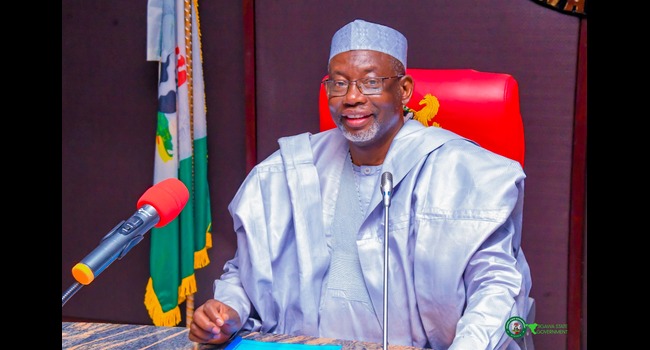The Foreign, Commonwealth and Development Office (FCDO), in collaboration with the United Nations International Children’s Emergency Fund (UNICEF), has handed over 11 climate-resilient primary healthcare and basic education facilities to the Jigawa State government.
At the ceremony in Chamo town, Dutse local government area, Governor Umar Namadi commended the FCDO and UNICEF for their multi-faceted interventions.
He said upgrading health and educational facilities to be resistant to climate change is a strategic initiative, as Jigawa is one of the states that battles perennial floods and rainstorms, which consistently require costly renovations of such public facilities.
“The remodeled, climate-resilient infrastructure will serve as a model, and we promise to monitor its efficiency and scale it up to other local governments to achieve greater cost savings, sustainable service delivery, and a reduction in environmental degradation,” the governor said.
“The Chamo Primary Healthcare Facility and Primary School, built in the 1960s, have undergone a series of renovations and upgrades. However, the facilities have never experienced the level of expansion and improvement we are seeing today, handed over by the FCDO and UNICEF. We are very grateful for that.”
“FCDO and UNICEF have been consistent and enduring partners to Jigawa State for decades, particularly in the areas of Water and Sanitation, Immunization, Basic Education, Child Nutrition, Governance, and Public Accountability. The impact of their interventions has helped improve the quality of public service delivery and the socio-economic development of our dear state.
We thank you for that,” Governor Namadi stated.
Speaking at the event, the UNICEF country director in Nigeria, Mrs. Wafaa Saeed, said that with funding from the FCDO, the project was executed in three pilot local government areas of Jigawa State: Dutse, Birniwa, and Kafin Hausa.
She explained that the intervention aims to provide a replicable model for the state and other public and private organisations to follow when building facilities to ensure sustainable service delivery and climate resilience.
For her part, the FCDO country director in Nigeria, Mrs. Cynthia Rowe, commended the Jigawa State Government for its commitment to the memoranda of understanding (MoUs), which made the project’s implementation seamless.
She added, “Climate-resilient infrastructure is an initiative designed to endure current challenges like global warming, flooding, windstorms, and other environmental degradation that can damage infrastructure before the end of its intended lifespan.”
“As we hand over these facilities, we are very grateful to the Jigawa State Government and the beneficiary communities for their kind cooperation. We hope this initiative will be scaled up, and we look forward to continued collaboration in various areas of human and ecosystem development,” Mrs. Rowe said.





